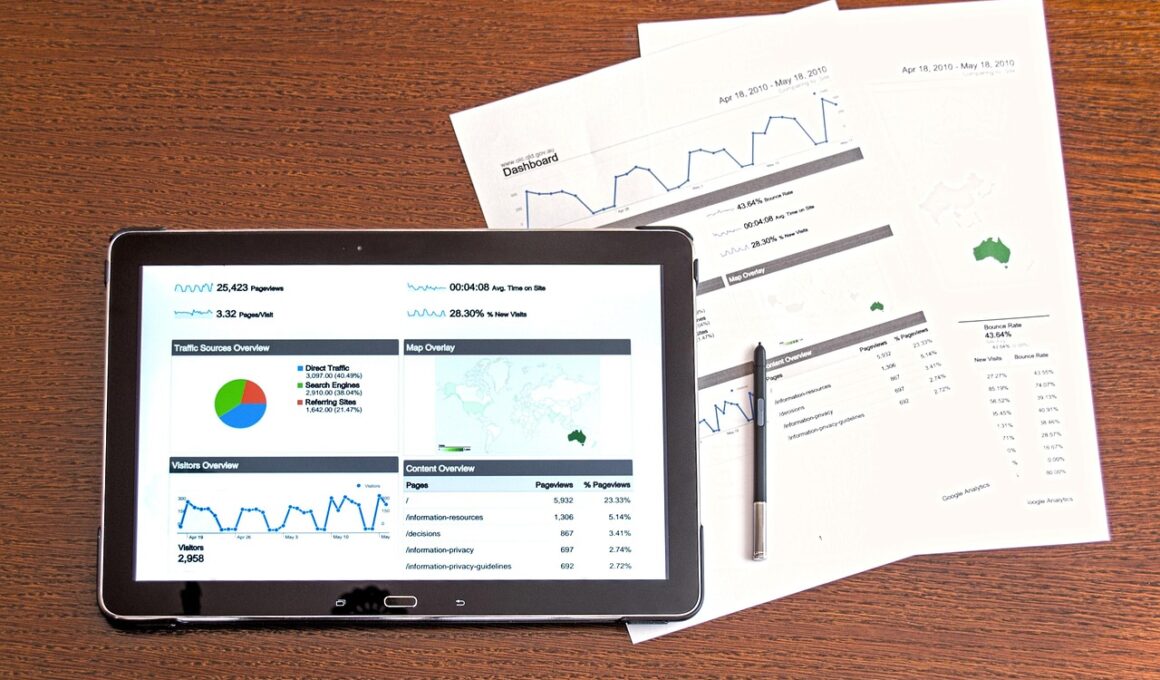The Impact of Platform Reporting Tools on PPC Campaign Success
Choosing the right PPC platform significantly impacts the effectiveness and success of online campaigns. Most importantly, one of the main factors that can determine the outcome is the quality of reporting tools provided. Effective reporting enables advertisers to track the performance of their campaigns in real time. This insight allows them to make necessary adjustments quickly, optimizing their spending. Therefore, a platform must offer robust analytics that can help identify profitable keywords, ad placements, and audience targeting options. Understanding these elements can lead to more strategic campaign management. Advertisers who invest time in analyzing these factors are often more successful. When platforms provide comprehensive reporting, users can uncover trends that might otherwise go unnoticed. Consequently, informed decisions can be made, leading to improved PPC strategies. Hence, advertisers should research the reporting capabilities of each PPC platform before making a choice. A platform that empowers users with data offers a competitive advantage, leading to success in digital marketing endeavors. Therefore, reporting tools are vital for the continual improvement of campaigns and achieving desired results.
Once you’ve chosen a PPC platform, the next step involves effectively leveraging its reporting features. Knowing how to interpret the data gathered from these tools plays a crucial role in campaign optimization. Key performance indicators (KPIs) such as click-through rates (CTR), conversion rates, and cost per acquisition (CPA) should be carefully monitored. This information guides further investment decisions and budget adjustments. Additionally, utilizing A/B testing can refine strategies and help users understand what works best for their audience. By analyzing different ad copies and images, advertisers can determine effective variations. Hence, managers can adopt a more informed approach to enhancements. Digging deeper into audience demographics is equally essential since understanding the specific interests and behaviors of different segments can refine targeting efforts. This translates to a higher return on investment (ROI) for advertising campaigns. It’s essential to regularly review these insights. Moreover, exporting these reports to other formats facilitates team discussions and sharing of strategies. All these elements combined highlight how critical robust reporting tools are within a chosen PPC platform. Ultimately, they steer the direction of marketing efforts.
Integrating Reporting with Campaign Strategy
Successfully integrating reporting data into the overall campaign strategy is essential for maximizing efficacy. For instance, platforms that allow easy data exports and integrations with other marketing tools enhance overall productivity. Incorporating actionable insights into campaigns facilitates more strategic planning, ultimately optimizing results. Adopting a data-driven approach permits focused improvements based on statistics rather than assumptions. Furthermore, correlating platform reporting insights with other marketing data can reveal deeper trends. For example, if a specific demographic consistently shows high conversion rates, advertisers can channel efforts towards that segment more aggressively. Ensuring that the information is actionable is critical, as it enables clear decision-making processes. Thus, choosing a platform that prioritizes user-friendly reporting is essential. A straightforward interface increases the likelihood that marketers will utilize available data effectively. Additionally, combining historical data with real-time statistics allows for better tracking of campaign efficacy over time. Through this approach, challenges can be anticipated, and strategies can adapt swiftly. As a result, advertisers enhance their potential for success across the digital landscape.
Understanding the distinctions among various PPC platforms is essential. For instance, Google’s AdWords provides exceptional detailed reporting options that may cater to specific advertiser needs. Nevertheless, platforms like Facebook Ads have different reporting structures that focus on engagement metrics. Therefore, it’s important to evaluate what aspects of reporting are most relevant. An advertising strategy that leverages the unique reporting capabilities of a chosen platform may outperform those that do not. Many advertisers often take advantage of platform-specific features, such as audience insights or ad scheduling reports. Appropriate utilization of these tools can significantly enhance campaign performance. Moreover, some platforms offer additional resources such as webinars or training sessions designed to maximize reporting tool effectiveness. Hence, potential advertisers should examine the support resources provided by each platform. This can help them understand how to best use reporting features, ensuring they make informed decisions. In addition, thorough research on platform updates will guarantee users stay aligned with new tool offerings. In this fast-paced environment, being ahead with reporting capabilities can foster competitive advantages.
Analyzing Competitor Performance
Reviewing competitor performance through a chosen PPC platform can provide critical insights. Platforms with reporting tools that allow for competitor analysis enable advertisers to benchmark their performance against industry standards. Learning from the strategies that competitors implement can reveal valuable trends and successful tactics. These insights foster informed decision-making when launching or adjusting campaigns. For example, assessing the keywords that drive traffic to competitor ads can illuminate potential opportunities for emerging keywords. Additionally, analyzing engagement metrics helps identify successful ad formats and creative strategies. Hence, advertisers can make informed changes that can lead to improved performance. Another strategy involves studying ad placements to discover effective channels that competitors are using. This information can direct attention towards possibly overlooked media channels. Moreover, acquiring knowledge about your competition’s budgets and campaign lengths may lead to better campaign planning. Understanding the local trends related to competition is equally important. Competitor reporting also ensures advertisers routinely refine their strategies, avoiding stagnation in the fast-paced digital advertising landscape. Learning from competitors provides a pathway to innovation and superior advertising techniques. Such strategies yield substantial benefits, appearing in improved ad performance and reach.
Among the many features available in PPC platforms, it is vital to focus on customizability of reports. This allows advertisers to create tailored reports that reflect specific business goals and objectives. By customizing reporting formats, users can highlight crucial metrics that align with their marketing strategies. For instance, if maximizing conversions is a key priority, reports should emphasize conversion data. Therefore, it’s crucial to identify which metrics to monitor closely. Over time, customizing reports can streamline data interpretation, ensuring that relevant information is readily accessible during decision-making sessions. Furthermore, marketers need platforms that enable scheduled reporting, where automated reports can be generated weekly or monthly. This feature removes the manual effort involved in tracking performance. Ultimately, it saves time while ensuring that teams are kept informed with actionable data. Moreover, customized reports enable seamless collaboration among team members, as they can share relevant insights collectively. Consequently, the focus on improvement areas becomes sharper. Marketers looking to keep pace in their sector must engage with platforms offering advanced reporting options that allow customized metrics. This approach leads to maximized visibility of campaign performance and areas needing improvement.
Continuous Learning and Adaptation
The success of PPC campaigns necessitates a commitment to continuous learning and adaptation. Trends in online advertising, especially PPC, can shift rapidly, necessitating ongoing education about platform reporting tools. Marketers who actively engage with the available reporting options often see better results due to their proactive nature. Regular analysis of performance metrics can reveal which campaigns deliver the highest ROI, allowing marketers to augment successful elements and phase out underperforming strategies. Furthermore, engaging in targeted training sessions offered by PPC platforms can enhance understanding of new features. As markets evolve, responding promptly to these shifts is essential. Varying the use of different reports can illuminate diverse insights that offer competitive advantages. Advertising strategies ought to evolve with the data, using insights gleaned for future planning. Over time these strategies may lead to increased engagement and enhanced conversion rates. Becoming proficient with a chosen PPC platform’s reporting capabilities encourages marketers to innovate continuously. This adaptation process provides a resilient marketing strategy in an ever-changing industry landscape. Consequently, advertisers will be well-prepared to meet consumer demands and stay ahead of competition.


